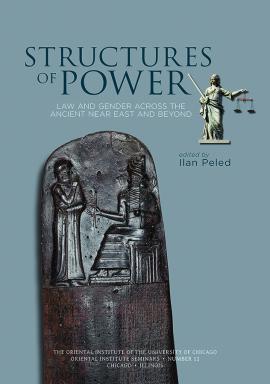The Oriental Institute of the University of Chicago announces publication of a new title, Structures of Power: Law and Gender Across the Ancient Near East, edited by Ilan Peled. The volume has titles of interest to Assyriologists, Egyptologists, Classicists, and Chinese studies. The volume is available as a complimentary download or softcover purchase.
Structures of Power: Law and Gender Across the Ancient Near East
Edited by Ilan Peled
With contributions by Brian Muhs, Ilan Peled, Adele C. Scafuro, Thomas A. J. McGinn, Laura A. Skosey, Laura Culbertson, Melinda G. Nelson-Hurst, Gary Beckman, Edward L. Shaughnessy, Tal Ilan, and David S. Powers, with response by Janet H. Johnson and Martha T. Roth
Oriental Institute Seminars 12
Chicago: The Oriental Institute, 2018
ISBN 978-1-61491-039-8 Pp. vii + 220; 15 illustrations
$29.95
Information and Download: https://oi.uchicago.edu/research/publications/ois/ois-12-structures-power-law-and-gender-across-ancient-near-east Purchase: https://www.oxbowbooks.com/dbbc/structures-of-power.html Purchase in the UK: https://www.oxbowbooks.com/oxbow/structures-of-power.html
This volume publishes the proceedings of the eleventh annual University of Chicago Oriental Institute Seminar. Its central goal is to present a cross-cultural study of the intersection between law and gender relations in the ancient world, with a focus on the ancient Near East. When reflecting upon the formation, perpetuation, and interactions of social structures that frequently come into conflict with each other, one discovers that gender constructs are used by mechanisms of social monitoring and control; structures of power. One such example is the realm of jurisdiction and legislation. This volume uses the sphere of legal institutions as a prism through which to consider gender relations in the ancient world, both in the Near East and beyond. The way in which similar issues were manifested in different cultural and historical contexts is examined, with the goal of identifying common denominators as well as particularities. The three themes discussed in this volume are examined through multiple historical-cultural examples.


